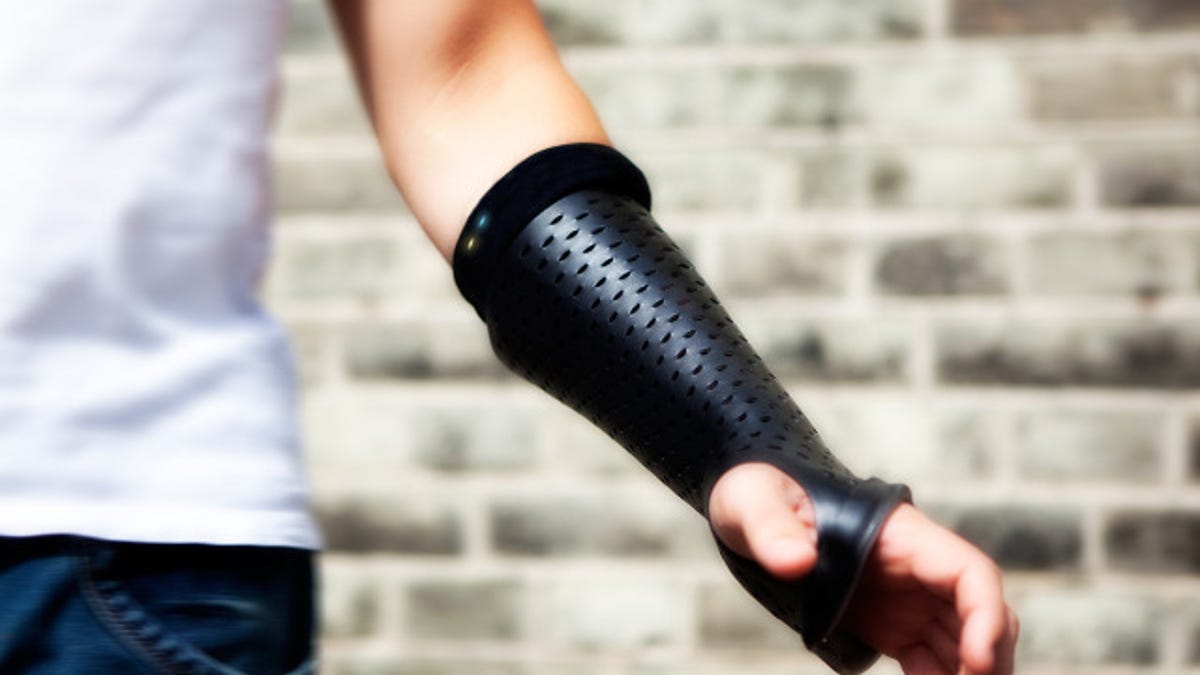Darth Vader-style cast tracks progress with sensors
A design graduate from the Copenhagen Institute of Interaction Design introduces a cast he calls "Bones" that employs sensors to capture muscular activity and help users track their recovery.

As anyone who has broken a bone knows, keeping up with physical therapy post-injury can be painful and annoying, and without a clear way to gauge progress, the regimen is as tempting to avoid as a bland diet.
Recent Copenhagen Institute of Interaction Design graduate Pedro Nakazato Andrade hopes to keep people motivated--and thus improve recovery time--via a prototype cast that employs electromyographic sensors, which measure the electrical activity produced by a muscle when it moves.
Called "Bones," his cast prototype can keep a running tally of how much the injured area is being exercised.
The idea behind the design is rooted in the idea behind weight loss programs such as Weight Watchers: people who can track their progress using real, hard data are more likely to stay motivated and keep doing what they have been told to do.
Andrade writes on his Web site that his Bones cast could have an even wider effect, if user activity were wirelessly sent to a Web site to be shared with a network of professionals, including doctors and physiotherapists, who could then aggregate the data and discern which activities using which muscles result in the fastest recovery times.
To get a sense of how the cast works, check out Andrade's video of a very happy woman doing very happy things (jogging, produce shopping, painting, etc.) with a cast fit for Darth Vader (yes, the juxtaposition is fantastic):
Bones from Pedro Andrade on Vimeo.
(Via CNET sister site SmartPlanet)

